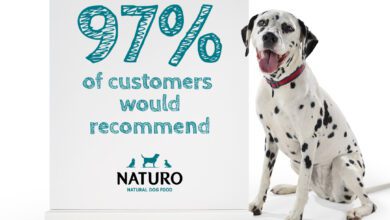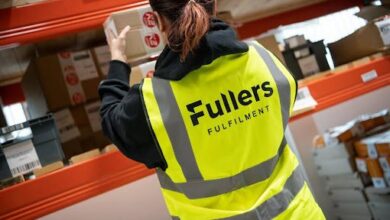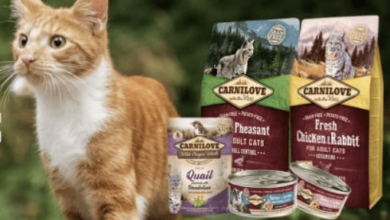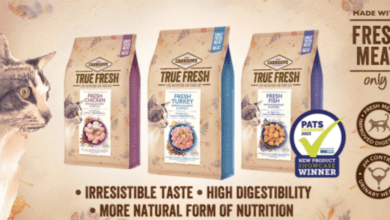
These days, pet owners can buy super premium pet food which is seen by many as equivalent to baby food in terms of its quality. Pet owners want their pets to stay healthy and these super premium pet foods, containing health promoting ingredients, can help to support their pet’s wellbeing. Similar to parents when it comes to their children’s or babies’ food, pet owners are also concerned about food allergies, hence there is now a growing demand amongst owners for hypoallergenic and clean label pet foods that address these needs.
Growing demand for natural and premium pet foods
In 2019, the pet food market worldwide stood at €73 billion and it is predicted to reach €103 billion by 2027. This expected global pet food market growth is due, in part, to an increasing demand from pet owners for more natural and premium products which is a direct reflection of what is happening in human nutrition. According to the American Veterinary Medical Association (AVMA): “Trends in companion animal nutrition often mirror trends in human nutrition, reflecting the desire of pet owners to feed them diets they consider healthy and beneficial for the well-being of their pets”. Governments are also increasingly encouraging the usage of natural, healthy, and safe ingredients in pet food products and demanding more label transparency when selling such products.
As more consumers make the connection between a good diet and improved health for themselves, they are now taking extra care to choose the right foods for their beloved pets to help increase their overall wellbeing and health, especially for pets with specific health conditions.
Human and pet trend crossover continues
While limited ingredient diets have been translated into more transparent and recognisable ingredient lists, the original purpose of these diets was to alleviate pet allergies. Veterinary data shows that 20 to 30% of dogs and approximately 15% of cats who have been diagnosed with pruritus, allergic skin disease or atopic dermatitis, suffer from cutaneous adverse food reactions (CAFRs), which are likely to represent food allergies (FAs) of immunologic origin. Studies like these substantiate a driving demand for hypoallergenic ingredients and products that can help owners support their pet’s limited-ingredient diets, as well as the prevention of allergies. BENEO’s research has shown that over 60% of cat and dog owners are ‘very or somewhat concerned’ about food allergies, with 2 in every 5 respondents also saying that using no allergens – such as gluten, soy, corn and wheat – makes food seem a lot healthier. This highlights that concern about food allergies applies to the majority of pet owners, meaning that pet food that supports limited-ingredient and hypoallergenic diets hold mass appeal and is an area sure to grow further in popularity in the years to come.
The rise of rice protein in veterinary and premium pet foods
With pet owners becoming increasingly conscious about what is in their pets’ food, it is no surprise that demand for hypoallergenic, highly digestible and plant-based veterinary and premium diets is on the rise. To meet this need, more and more manufacturers are incorporating rice protein into their pet foods, enabling retailers to also cater for this rising demand. This is largely due to the fact that it is a high quality, concentrated protein source with an excellent amino acids profile. In addition, 63% of consumers say that rice protein sounds natural or very natural to them making the rice protein a very appealing ingredient for pet’s owners.
Rice protein for those pets with food allergies
Food allergies occur when the animal immune system abnormally reacts to a certain food protein and mounts an immune response against this allergen, leading to skin and/or gastrointestinal disorders. There is no easy test to identify food allergy triggers, so dietary elimination trials are recommended by vets. With unique protein and carbohydrate sources, limited-ingredient diets reduce the number of potential triggering allergens in the end product. As a hypoallergenic, clean label ingredient, BENEO’s rice protein is an ideal ingredient for use in limited-ingredient diets, as it is a high quality and concentrated protein with a protein content of >80% and produced in Europe from non-GMO raw materials sources.
Rice protein for those sensitive pets
In pet foods where high digestibility is required, rice protein is also the perfect ingredient. It has shown an apparent digestibility of 87% in dogs, making it not only attractive for pets with allergies, but also for sensitive pets such as puppies and older animals. In addition, BENEO’s rice protein is produced in alkaline conditions, which leads to significantly better digestibility than other rice proteins that have been isolated using an acidic treatment.
Amino acids are essential for keeping any pet in optimum health. Among plant proteins the rice protein has the highest essential amino acids (EAA) content. When BENEO’s rice protein EAA profile is compared against the requirements of adult dogs, it delivers a well-balanced profile and what is required to promote long-term health.
Recognisable ingredient lists are of key interest for pet owners as they are carefully watching out for potentially hazardous ingredients for their pets. Add to this trend the increased concern for digestive well-being and food allergies, and it’s no surprise that more manufacturers are increasingly looking into clean label, hypoallergenic and highly digestible solutions such as rice protein to meet this consumer demand. BENEO’s rice protein is well-placed to deliver a high quality, plant-based alternative that can help manufacturers and their retail customers deliver the best in veterinary diets and premium pet food products that respond to these growing trends.
By Karel Thurman, commercial director BENEO Animal Nutrition














